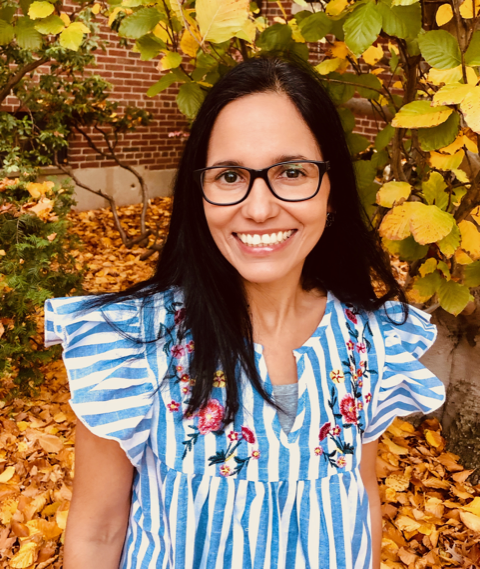Why 'yes' vote on Question 4 matters

Come Nov. 8, vote yes on Question 4 on your Massachusetts ballot. My own story shows why it’s important.
I remember when I first drove a car in the United States. I was 21, driving without a license, and I got stuck in a snowbank.
There I was, crying and calling my family and my neighbor. I was afraid a police officer would try to help me because I was unlicensed. I can still remember the fear.
Last summer, state legislators passed the Work and Family Mobility Act, which allows qualified Massachusetts residents to apply for a driver’s license regardless of immigration status. For immigrants like me who have been in the country for more than a decade, that was a huge victory — and a relief for many immigrant families.
The law is scheduled to go into effect in July; however, a small group of people has used misinformation and hate speech to add a general-election ballot question that would reverse this legal achievement.
My requests are twofold: that you vote yes on the referendum - to keep the law intact - and that you educate anyone who argues otherwise.
Massachusetts is the 17th state to have passed a law to extend a driver’s license to all residents regardless of immigration status. The law is scheduled to go into effect in July 2023. States that have implemented licenses-for-all-qualified-drivers laws have noticed that it has made the roads safer.
Researchers at the Stanford Policy Lab found that after California passed its law in 2013, hit-and-run accidents declined by 7% to 10% in 2015 after the state extended licenses to 600,000 people.
When I think about the prospect of deportation for an inconsequential mistake like hitting a snowbank, I understand why someone without a license would flee a fender bender. Younger Cristina needed the opportunity to be a tested, licensed and insured driver. That would have made the roads and me safer.
I mentioned fear of police, but law enforcement in Massachusetts has endorsed the Work and Family Mobility Act as a common-sense law. The police wanted to know that I was tested, licensed and insured. Most of all, they wanted to help me if I needed help. They do not want 21-year-olds to be scared of them.
Fear of the police does not help our communities. In my research as a social work doctoral candidate, I ask immigrant mothers about their social networks and how the people they know help them, and vice versa. My questions imply that they’re mobile, but many participants drive a car in fear or need to take public transportation and walk an extra mile wherever they go.
According to estimates from the Migration Policy Institute, more than 200,000 unauthorized immigrants live in Massachusetts. Many are part of mixed-status families, with approximately one in 20 U.S. citizen children in Massachusetts residing with at least one undocumented family member.
Undocumented immigrants in Massachusetts paid an estimated $253 million in state and local taxes in 2018. Immigrants, regardless of documentation status, go to work, school, church and medical appointments and visit friends. They are an integral part of the commonwealth and need the option to drive without fear of deportation.
A fear-mongering group is spreading a lot of misinformation about the law in an attempt to overturn it. To clarify, I will point out what this law does not do:
It does not give people immigration status; it does not grant voting rights; it does not give rights to resources reserved for citizens and legal residents.
It is simply a standard driver’s license. In May 2023, before this law comes into effect, people will no longer be able to board an airplane using a standard driver’s license because it is not a REAL ID.
I have lived half of my life in Massachusetts. This is my home. Today, I am a mother of two kids, a wife, an American citizen with an all-but-dissertation Ph.D. in social work. I am, proudly, a Brazilian immigrant.
The people behind this ballot question are not representative of the love that Massachusetts has for its immigrant communities.
We will show that love at the polls in November by voting yes on Question 4 overwhelmingly. Show me. Show us, Massachusetts.
Cristina Araujo Brinkerhoff is a doctoral candidate at Boston University School of Social Work. Her dissertation is about the impact of social networks on the emotional health and well-being of immigrant mothers. She is a board member at the Brazilian Worker Center.
This article originally appeared on Telegram & Gazette: Why 'yes' vote on Question 4 important
